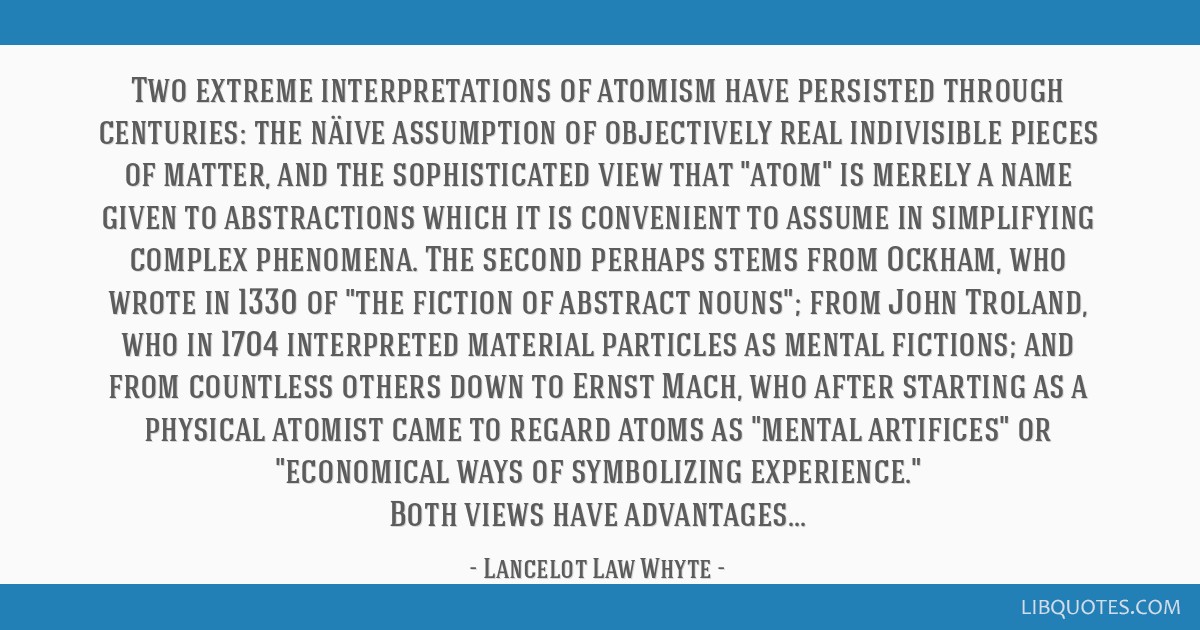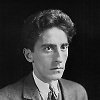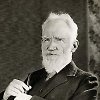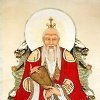Two extreme interpretations of atomism have persisted through centuries: the näive assumption of objectively real indivisible pieces of matter, and the sophisticated view that "atom" is merely a name given to abstractions which it is convenient to assume in simplifying complex phenomena. The second perhaps stems from Ockham, who wrote in 1330 of "the fiction of abstract nouns"; from John Troland, who in 1704 interpreted material particles as mental fictions; and from countless others down to Ernst Mach, who after starting as a physical atomist came to regard atoms as "mental artifices" or "economical ways of symbolizing experience."
Both views have advantages...
Essay on Atomism: From Democritus to 1960 (1961)























